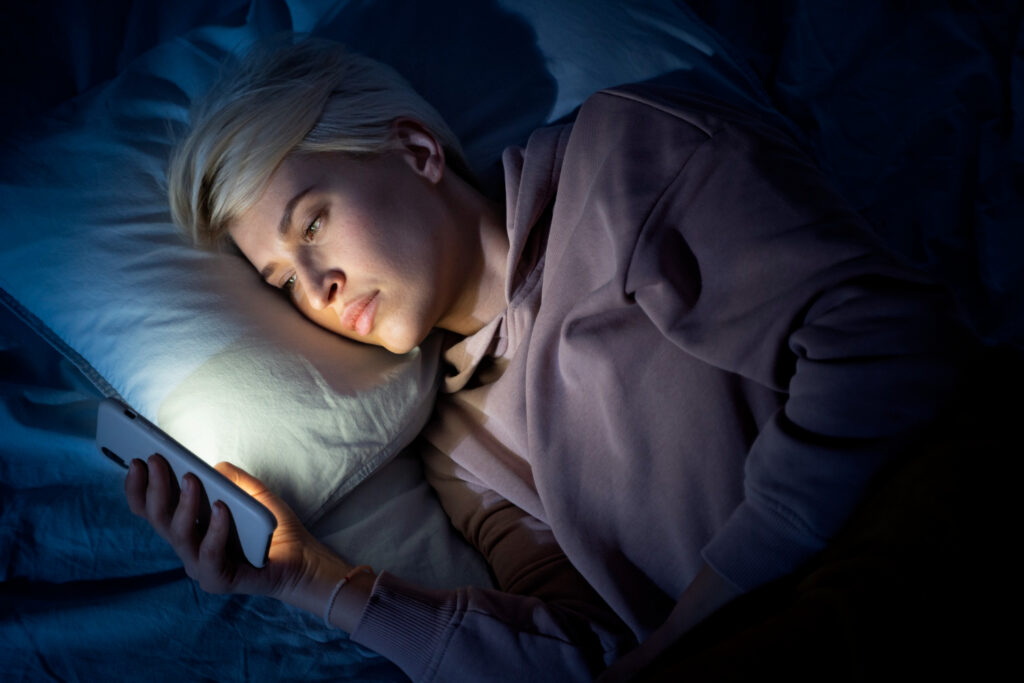
Sleep deprivation occurs when you don’t get the amount of sleep your body requires. The most evident sign is feeling fatigued during the day, which can impair your functioning and alertness, potentially leading to dangerous situations. Beyond just feeling tired, prolonged sleep deprivation can have serious long-term health implications.
How Much Sleep Do You Need?
Generally, adults need at least seven hours of sleep per night to feel rested and maintain optimal mental and physical functioning. However, individual sleep needs can vary based on age, lifestyle, overall health, genetics, and recent sleep patterns. Some adults might function well on slightly less sleep, while others may need up to nine hours.
Children and teenagers require even more sleep
- Teenagers: 8-10 hours per night
- School-aged children: 9-12 hours per night
- Younger children (including naps): 11-14 hours per day for toddlers
When Does Lack of Sleep Become Sleep Deprivation?
Any amount of sleep that is less than what you need can be considered sleep deprivation. In research, specific thresholds are often used to define it, such as 24 hours without sleep, which is termed total sleep deprivation, or several consecutive nights with only four hours of sleep, known as partial sleep deprivation. Both can have similar detrimental effects.
The quality of sleep also matters. Poor sleep quality, characterized by frequent awakenings and insufficient time in each sleep stage, can lead to sleep deprivation even if the total sleep duration is adequate.
Recognizing Sleep Deprivation
The primary symptom of sleep deprivation is daytime fatigue, leading to decreased physical and mental performance. Other signs include:
- Difficulty focusing
- Slower reaction times
- Headaches
- Clumsiness
- Forgetfulness
- Irritability
- Lack of motivation
- Mood swings
- Trouble concentrating
- Decreased sex drive
Sleep-deprived individuals may also perceive tasks as more challenging, making them less likely to engage in activities. Children might show hyperactivity, decreased school performance, and behavioral issues.
Symptoms Based on Duration of Sleep Deprivation
- 24 Hours: Drowsiness, irritability, headache, and concentration issues, comparable to a blood alcohol concentration of 0.10%.
- 36 Hours: Severe energy depletion, increased anger, anxiety, confusion, disorientation, and detachment.
- 48 Hours: Hallucinations and worsening symptoms, along with significant physical weakness.
- 72 Hours: Severe symptoms like intense hallucinations, potential psychosis, paranoia, and delusions.
Causes of Sleep Deprivation
Sleep deprivation can result from various factors, including sleep disorders (like sleep apnea, insomnia, restless legs syndrome), medical conditions (such as arthritis, heart disease, asthma, depression, anxiety), lifestyle factors (night shifts, noisy or uncomfortable sleeping environments), and stress.
Risks of Sleep Deprivation
Short-term consequences include impaired decision-making, increased accident risk, memory issues, hunger and weight gain, vision problems, emotional instability, and impulsivity. Long-term sleep deprivation can lead to a weakened immune system, higher risk of diabetes, elevated blood pressure, increased risk of heart attacks, and greater likelihood of mental health disorders like depression and anxiety.
Chronic sleep deprivation can also diminish quality of life, affecting your ability to enjoy activities and straining personal and professional relationships.
When to Seek Medical Advice
Occasional sleepless nights aren’t usually a cause for concern. However, if you regularly feel tired during the day or find it difficult to perform daily activities due to lack of sleep, it may be time to consult a healthcare provider. They can help identify and treat underlying issues such as sleep disorders or other health conditions impacting your sleep.
Diagnosing Sleep Deprivation
Diagnosis involves discussing your sleep habits, medical history, and symptoms with a healthcare provider. This may include a physical exam and blood tests to rule out other conditions. You might be referred to a sleep specialist who could conduct a polysomnography (sleep study) to diagnose sleep disorders.
Addressing Sleep Deprivation
To recover from sleep deprivation, you need to get the right amount of sleep consistently. Here are some tips to improve sleep habits:
- Maintain a consistent sleep schedule, even on weekends.
- Avoid caffeine, alcohol, and large meals before bedtime.
- Exercise regularly, but not right before bed.
- Limit screen time in the evening.
- Establish a relaxing pre-sleep routine.
- Keep your sleeping environment cool.
- Get adequate daylight exposure during the day.
For specific conditions like sleep disorders, treatments might include over-the-counter or prescription sleep aids, cognitive behavioral therapy for insomnia, or using a CPAP machine for sleep apnea.
By recognizing the signs of sleep deprivation and making necessary lifestyle adjustments, you can improve your sleep quality and overall health
A Quick Review
Sleep deprivation is when you don’t get enough sleep, leading to fatigue and impaired daily functioning. Most adults need at least seven hours of sleep per night. Symptoms of sleep deprivation include difficulty concentrating, irritability, and slower reaction times. Causes range from sleep disorders to lifestyle factors. Chronic sleep deprivation can lead to serious health issues like heart disease and diabetes. Improving sleep hygiene and addressing underlying health issues can help manage and prevent sleep deprivation.











